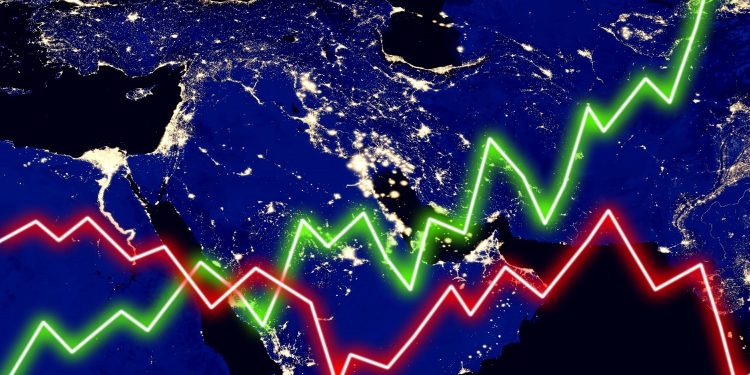Saudi Arabia is currently highlighting the robustness of its primary stock exchange as Riyadh becomes the stage for the Saudi Capital Markets Forum. This event, organized by the Saudi Tadawul Group—the entity overseeing the nation’s key exchange platform with the same moniker—reveals a market capitalization that reached $2.9 trillion as of January’s end.
Efforts to draw in international financiers have been vigorous, with the kingdom instituting reforms, aligning its regulatory systems with global benchmarks, and joining prominent international indices. This strategy also involves proactive investor engagement and substantial investments in both technological upgrades and infrastructure, as noted by Khalid Al-Hussan, CEO of the Saudi Tadawul Group.
The initiatives seem to be fruitful, with a significant uptick in IPO activity within Saudi Arabia and the UAE since the latter part of 2021. Trading volume on the Saudi market surged to over 8 billion shares in January, marking a nearly fourfold escalation from the same period in the previous year.
“The current momentum is impressive, and we are seeing positive signs for 2024,” stated Zaid Ghoul, Head of Investment Banking at SNB Capital, who also pointed out a recent spike in share trading. This bustling market activity is propelling more companies toward initial public offerings.
In addition to its capital market endeavors, the Saudi Tadawul has its sights set on expanding its influence within international commodity markets. A recent announcement revealed its plan to acquire a 33% stake in the Dubai Mercantile Exchange. This move will make Saudi Tadawul the preeminent shareholder, alongside the CME Group, and result in a rebranding to the Gulf Mercantile Exchange.
In the short term, the Gulf’s major stock markets experienced a downturn in early trading following reports of a rise in U.S. producer prices for January, exceeding forecasts. These figures contribute to persistent inflation worries and reduce expectations for prompt interest rate reductions by the Federal Reserve. As most Gulf Cooperation Council (GCC) nations, including Saudi Arabia and the UAE, peg their currencies to the U.S. dollar, they tend to mirror the Fed’s monetary policy decisions closely.


